Despite Jadhav’s sentence: Nawaz-Modi meeting very much on cards
Officials say influential SCO countries are pushing India, Pakistan to re-engage
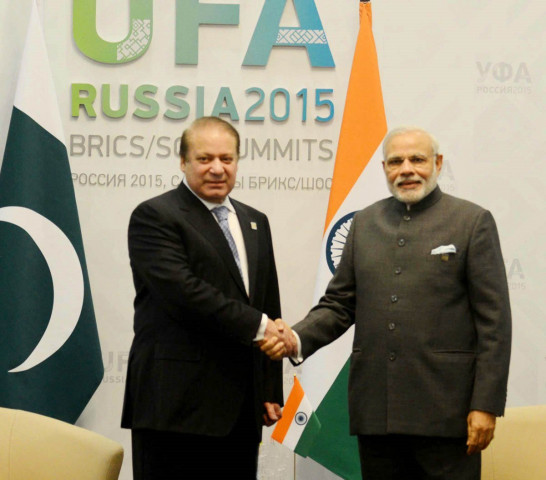
Whatever Mr Modi has to do or say to satisfy his electorate, India has to live in the wider world of the subcontinent and South Asia, as does Pakistan. PHOTO: PID
Few had predicted that India’s then prime minister Atal Behari Vajpayee would travel to Lahore by bus merely months after the two countries conducted tit-for-tat nuclear tests in 1998.
In 2001, the two countries were on the brink of a war after an attack on India’s parliament. But just seven months later, the Agra summit took place and Vajpayee sat down with Pervez Musharraf, whom the former had accused of sabotaging the Lahore declaration through the Kargil adventure.
PM Nawaz urges nation to unite in condemning Mashal Khan's lynching
Fast forward to 2017, relations between Pakistan and India are once again at their worst. The last thing the two sides needed was controversy over Indian Navy officer turned RAW agent Kulbhushan Jadhav, who was sentenced to death for not only espionage but also being behind a series of terrorist attacks in Pakistan.
His conviction has drawn condemnation from across the border with India calling the death sentence ‘premeditated murder.’ In India, there was even talk of severing diplomatic relations with Pakistan.
But as has been the case in the past, the two nuclear-tipped neighbors may bring yet another surprise, as Foreign Office officials and diplomatic sources do not rule out the possibility of a meeting between the prime ministers of the two countries in June.
The two leaders would be gathering in Astana, Kazakhstan for the Shanghai Cooperation Organisation (SCO) summit. The forthcoming summit of SCO, which comprises countries such as Russia, China and Central Asian States, would formally admit Pakistan and India as full members.
Diplomatic sources told The Express Tribune that influential countries in the SCO are pushing Pakistan and India to re-engage in order to ensure that the next summit is held in a conducive environment.
In fact, Pakistan and India were admitted to the SCO on condition that they would work together to improve their bilateral ties as well as promote interest of the organisation. That was one of the main reasons that both Prime Minister Nawaz Sharif and his Indian counterpart Narendra Modi met in Ufa, Russia at the sidelines of SCO summit in 2015.
“That’s very much possible,” replied a senior Pakistani official when asked the possibility of a meeting between Nawaz and Modi at the margins of SCO summit in Astana. The official, who spoke on condition of anonymity, said Pakistan had never shied away from the dialogue process. It is India, which has always been looking for excuses one way or the other to refuse talks, the official added.
He made it clear that Pakistan did not want that the issue of India spy to undermine the overall bilateral engagement process with India. “Kulbhushan is just one element. The main point is that involvement of Indian state in sponsoring terrorism in Pakistan has been established.” Yet, the government’s policy of reaching out to its neighbors has not changed, the official stressed.
While presenting the detailed charge sheet as well as timeline of proceedings against Kulbhushan, at a news conference in Islamabad last Friday, Prime Minister’s Adviser on Foreign Affairs Sartaj Aziz called for ‘more active diplomacy’ to arrest the slide in bilateral ties between Pakistan and India. His statement is seen as clear indication that Pakistan is still looking forward to resume the dialogue process.
Pakistan appreciates China’s support in fight against terrorism: PM Nawaz
“It is in Pakistan’s interest to seek rapprochement with India,” remarked defence analyst Lt Gen (retd) Talat Masood. He said Pakistan must continue to seek dialogue with its estranged neighbour despite current hiccups.
Overall domestic environment in India may not be in favour of talks with Pakistan, but there are voices now getting traction across the border that New Delhi will eventually have to talk to Islamabad whether on the issue of current unrest in Kashmir or the Kulbhushan’s case.
On the spy controversy, India has already approached Pakistan. The recent meeting between Indian High Commissioner Gautam Bumbwale and Foreign Secretary Tehmina Janjua took place at the former’s request.
Published in The Express Tribune, April 17th, 2017.


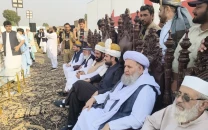
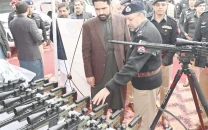
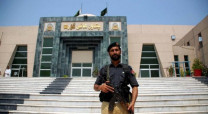

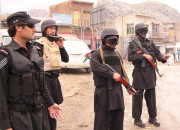












COMMENTS
Comments are moderated and generally will be posted if they are on-topic and not abusive.
For more information, please see our Comments FAQ